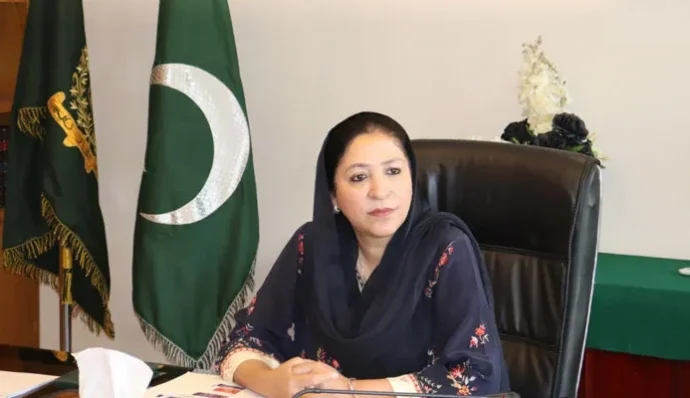Islamabad by IRFAN UL HAQ
Minister of State for Federal Education and Professional Training, Wajiha Qamar, emphasized that skills and vocational training are not just tools for employment but represent Pakistan’s dignity and economic strength. She made these remarks during her address at the two-day Global TVET Dialogue organized by NAVTTC (National Vocational and Technical Training Commission).
Commending NAVTTC Chairperson Gulmina Bilal Ahmed, the Minister praised her efforts in bringing international organizations together to align Pakistan’s technical and vocational education sector with global standards.
Wajiha Qamar stated that the international dialogue highlighted the importance of Technical and Vocational Education and Training (TVET) as a central driver of socio-economic development, rather than a supplementary agenda.
She pointed out a critical challenge: although 64% of Pakistan’s population is under the age of 30, less than 8% of youth are currently enrolled in formal TVET programs. Each year, around 2 million young Pakistanis enter the labor market, yet only a fraction possess industry-relevant skills.
“The mismatch between skills and market demand is both our biggest challenge and greatest opportunity,” she added. Highlighting Prime Minister’s vision, she noted the government’s push to link skills training with future job markets, especially in electric vehicles, agri-tech, and the green economy.
“If our training systems remain outdated, we risk leaving our youth behind. But if we reform and support the TVET sector, Pakistan can become a regional hub for skilled labor,” she asserted.
The Minister also stressed that TVET curricula must be industry-driven and directly linked to employment opportunities to ensure sustainable economic growth.
European Union (EU) representative Jeroen Willems appreciated the leadership of Gulmina Bilal, noting her role in bringing together TVET practitioners, educators, policymakers, and government officials under one platform. He shared that the dialogue produced 24 key recommendations vital for the sector’s development.
German Ambassador to Pakistan, Alfred Grannas, also expressed support, stating that Germany will continue to cooperate in strengthening the TVET sector. He praised the contributions of the Federal Minister, Minister of State, and NAVTTC leadership in promoting vocational training in Pakistan.
NAVTTC Chairperson Gulmina Bilal highlighted that the recommendations were the result of collective efforts from industry practitioners, academics, policymakers, and international partners. “We are committed to producing a globally competitive skilled workforce for Pakistan,” she said.
In the closing remarks, NAVTTC Executive Director thanked all international partners and stakeholders, stating that sustainable development is only possible through a strong and modern TVET sector. One of the key recommendations made was for parliamentary legislation to clearly define roles and responsibilities between federal and provincial governance bodies for better alignment and effectiveness.


